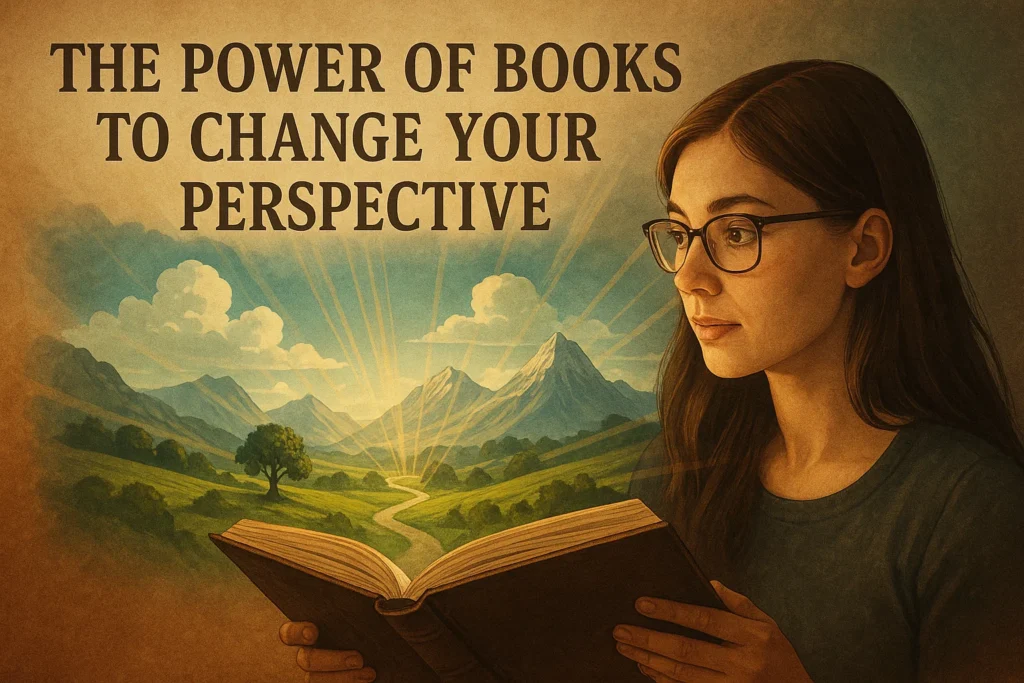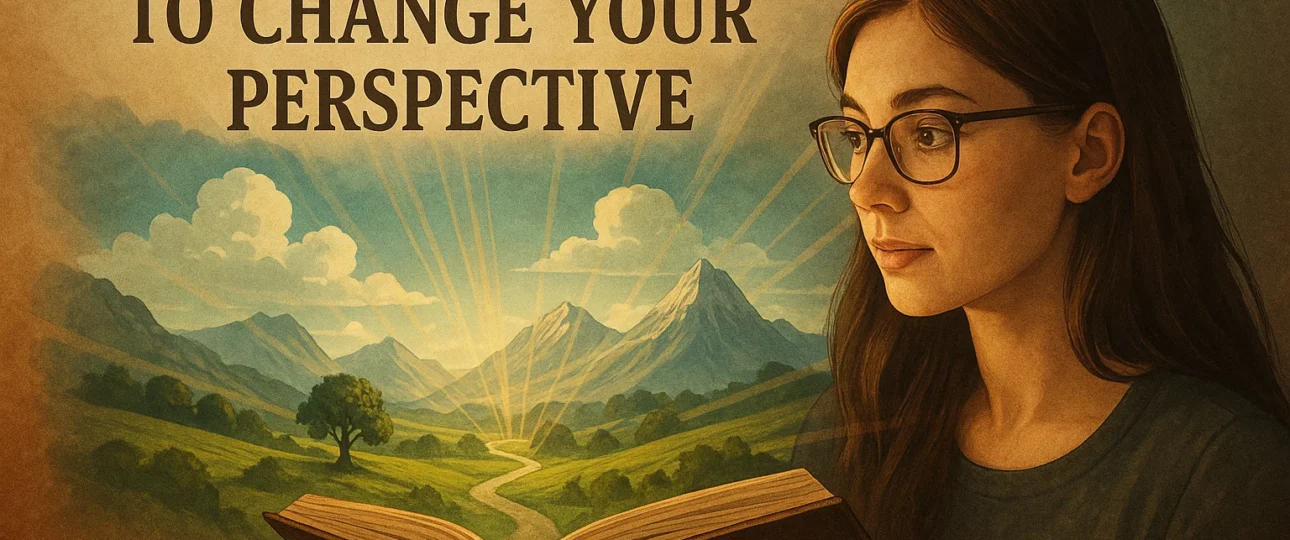Books have always held a unique place in human history. From the earliest cave paintings to the digital eBooks we carry on our smartphones today, stories and knowledge passed down through words have shaped our thoughts, beliefs, and actions. One of the most profound effects reading can have is altering the way we see the world. The power of books to change your perspective is immense—and often underestimated.
Whether you’re reading fiction or nonfiction, exploring ancient philosophy or modern memoirs, books have the incredible ability to open your mind to new experiences, challenge your assumptions, and lead you on a journey of transformation.
🟦 Why Perspective Matters
Your perspective is how you interpret the world—how you make sense of people, events, and ideas. It’s shaped by your upbringing, culture, experiences, and education. But here’s the catch: it can be limited. You can’t see what you don’t know. That’s where books come in.
Books offer an invitation to step outside your own life and into the shoes of others. They expand the boundaries of what you understand and believe. In doing so, they offer an opportunity for personal growth, empathy, and deeper self-awareness.
🟦 Fiction as a Window into Other Lives
Fiction, while invented, is rooted in truth. When you read a well-written novel, you live inside another person’s mind. You feel their fears, celebrate their joys, and struggle with their moral dilemmas. This experience activates something psychologists call “narrative transportation,” where you become immersed in a story and start adopting new perspectives.
A powerful example is Harper Lee’s To Kill a Mockingbird. Through the eyes of young Scout Finch, readers experience the injustice of racial prejudice in 1930s Alabama. The book doesn’t just inform; it transforms. Many readers walk away with a heightened awareness of injustice and a stronger commitment to equality.
This is the power of books to change your perspective in action. By empathizing with fictional characters, you build emotional intelligence, develop empathy, and sometimes even change how you treat others.
🟦 Nonfiction That Challenges Beliefs
Nonfiction books can be equally transformative, especially when they present well-researched ideas that challenge conventional wisdom. Think about how books like Malala Yousafzai’s I Am Malala or Viktor Frankl’s Man’s Search for Meaning have shaped global conversations around education, human rights, and the resilience of the human spirit.
Reading nonfiction allows you to reframe your experiences, reconsider your biases, and often leads to behavior change. For instance, a book on minimalism or sustainability might lead you to declutter your home or adopt a more eco-friendly lifestyle.
Again, we see the power of books to change your perspective—not through storytelling alone but through facts, evidence, and real-world insights.
🟦 Books as Mirrors and Windows
Educator Rudine Sims Bishop coined the terms “mirrors” and “windows” to describe the dual role books play. Some books reflect your own identity and validate your experiences (mirrors), while others offer a glimpse into lives vastly different from your own (windows).
Both are essential.
Mirror books can help you feel seen and understood. They can empower marginalized voices and affirm identity. On the other hand, window books foster understanding across cultures, generations, and ideologies. They help reduce prejudice, promote inclusivity, and encourage global thinking.
In either case, the power of books to change your perspective is evident. They allow you to explore the familiar and the foreign with equal depth.
🟦 Scientific Backing: How Reading Rewires the Brain
You might wonder: Is there scientific evidence behind these claims? Absolutely.
Neuroscience shows that reading—especially literary fiction—enhances brain connectivity and function. A study published in the journal Brain Connectivity found that reading a novel increases connectivity in the brain’s language and sensory regions. These effects persist for days, indicating long-term changes in brain function.
Furthermore, studies in psychology show that readers of fiction score higher on tests of empathy and theory of mind—the ability to understand others’ thoughts and feelings. This means that the more you read, the better you get at seeing things from someone else’s point of view.
This is the neurological proof of the power of books to change your perspective. They don’t just entertain; they shape your brain and, by extension, your worldview.

🟦 Real-Life Examples of Perspective Shifts
History is filled with individuals whose lives were radically changed by a single book. Abraham Lincoln credited Harriet Beecher Stowe’s Uncle Tom’s Cabin with helping to start the Civil War, calling her “the little lady who made this big war.”
Nelson Mandela found strength and inspiration in reading William Ernest Henley’s poem “Invictus” and works like Shakespeare during his imprisonment. These writings gave him hope and fortified his resolve.
Even in everyday life, readers often report shifts in how they view success, relationships, or failure after reading books like The Alchemist by Paulo Coelho or Atomic Habits by James Clear.
Again and again, we return to the same truth: the power of books to change your perspective is not theoretical—it’s real, measurable, and deeply personal.
🟦 How to Choose Books That Broaden Your Mind
If you’re eager to begin this transformative journey, here are a few tips for choosing books that can shift your worldview:
- Read Outside Your Comfort Zone
Choose authors from different countries, cultures, or belief systems. - Diversify Genres
If you usually read fiction, try memoirs or essays. If you love history, explore science or poetry. - Look for Critically Acclaimed Works
Award-winning or highly recommended books often offer deeper insight and thoughtful perspectives. - Join a Book Club
Discussing books with others helps you process new ideas and compare perspectives. - Read Mindfully
Reflect on how a book is influencing your thoughts, emotions, and actions. Keep a journal if needed.
🟦 Final Thoughts: The Lifelong Impact of Reading
Books are not just sources of information; they are vehicles of transformation. Every page turned is a step toward a broader, deeper understanding of the world and your place in it. Whether you’re seeking empathy, self-awareness, knowledge, or simply entertainment, reading offers all this—and more.
The power of books to change your perspective lies in their ability to reach across time, geography, and identity to speak to something universal: our shared humanity.
So the next time you pick up a book, remember—you’re not just reading. You’re evolving.
Read More How Fiction Enhances Empathy and Critical Thinking

